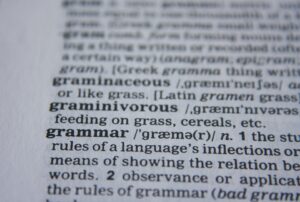 The debate about whether or not it’s proper to use an Oxford comma in one’s writing has been quelled today by Google, who has deemed the additional punctuation redundant.
The debate about whether or not it’s proper to use an Oxford comma in one’s writing has been quelled today by Google, who has deemed the additional punctuation redundant.
An oxford comma, otherwise known as a serial comma, is the final comma that’s used while writing out a listing of items. For example, you could say the team at Pam Ann Marketing are SEOs, digital marketers, and AdWords specialists. The comma which came before ‘and’ is considered an Oxford comma. Without it, it would read “the team at Pam Ann Marketing are SEOs, digital marketers and AdWords specialists”. When written that way, it gives the impression that everyone on the team are both digital marketers and AdWords specialists, which is not always true.
Grammarians have long vouched for the use of the Oxford comma because it makes for clearer writing, but it appears Google does not share the same enthusiasm. From a technical standpoint, loading all these extra commas has actually been found to lower page speed. From a user experience standpoint, Google says the extra comma is confusing and unnecessary.
Despite internet users and webmasters not sharing the same sentiments as Google, the company has decided to forgo a warning in this case and jump right to issuing penalties. If Oxford commas are found in your recently published pieces of content after April 1st, Google will be handing out manual action penalties.
The manual action will see your site removed from search results until such time as the oxford commas have been removed from your content. You can then submit a reconsideration request to have your site reviewed by Google again and ideally get yourself out of the doghouse.
Is Google Right or Wrong?
With the power Google yields it’s difficult to tell the company what is right or wrong. In this instance, there are no hard and fast rules related to the oxford comma. It’s a stylistic choice — some publications require it in their style guides, while others don’t.
Now, Google is creating a style guide for the web of sorts as it moves forward with manual action penalties for serial commas. What’s next? Two spaces after a period? A certain word length for paragraphs, or maybe overall article length?
This is an interesting move for Google, making it difficult to predict what the company might do next. Our best suggestion is to follow Google’s blogs very closely, watch how its team writes, and then do your best to emulate that style of writing. Stay prepared and don’t be taken for a fool 😉
- New Domain or Subdomain? Which is Better for SEO? - October 13, 2023
- Bing Chat Roasts & Rap-Battles Google Bard! - March 23, 2023
- The Importance of Developing an SEO Friendly Website Design - October 5, 2021






